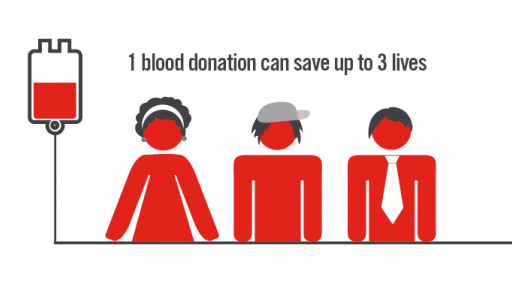Giving Blood A personal experience when donating blood
February 28, 2017

On February 15th Chapman University’s P.E.E.R. (Proactive Education Encouraging Responsibility) organization held a
blood drive
in partnership with the
American Red Cross
and as part of Wilkinson College’s G.A.S.P. week (
learn more about G.A.S.P.
). P.E.E.R. offers students and community members the opportunity to give blood annually and it yields a great turn out.
Giving blood is a great and relatively quick way to make a huge difference in the lives of people across America. Over 41,000 blood donations are needed every single day, and every two seconds there is someone in the United States who needs a blood donation. The need for giving blood is constant and always important; giving blood one time can save the life of three people. That alone is reason enough to give! According to some researchers, in addition to saving the lives of others, giving blood can also be good for your health. Studies have found that giving blood can help blood flow better, decrease blood pressure, balance your iron levels, and reduce your risk of a heart attack.
Interested in learning more? We interviewed Chapman sophomore Molly Miller on her experience giving blood. Here is what she has to say:
Name
: Molly Miller
Major
: Business Administration
Graduation
Year
: 2019
- Is this your first time giving blood? If so, why did you decide to do it? If not, how many times have you in the past and what keeps you donating blood?
This was my 4th time giving blood, and what keeps me doing it is that I have not had any negative experiences that deter me from going back. A teacher of mine in high school organized a lot of blood drives at my school because his wife had died from Leukemia a few years before, and he wanted to give back to other families that needed assistance just as his wife had when she was battling her Leukemia. Because I am healthy enough to donate and I am not afraid of needles, I have no reason to stop donating.
- How do you prepare for donating blood? Do you eat a lot of food/ drink a lot of water?
I am generally a very hydrated person, but in my experience donating the nurses have often told me that my veins are small and hard to find, so I drink a lot of extra water to make sure once they get the needle in the blood will keep flowing. I also try to increase the iron in my diet in the days before donating, because if your iron levels aren’t high enough, then they won’t let you donate.
- Why is it important to you to give blood?
It’s important to me because I never know if anyone I love will need blood donations, so I want to contribute as long as I can. There are other people that are relying on me and other donors to continue to contribute.
- What’s the best part about donating blood?
The snacks after (haha) but seriously, the staff that is working is always very kind and reassuring, because even though I’ve done it several times now, there are still moments when I’m nervous or light headed, and they always check in to see if I’m OK.
- I’ve never given blood before (I’m a little too squeamish), what’s the experience like?
The routine is fairly easy. I talk with the nurses first, and they ask questions to make sure you’re OK to donate. Then they ask me what arm I usually donate with and I tell them right, and they look at my right arm and ask me if I’ve been drinking water. I tell them yes, but they ask to see my left arm. After looking at that arm, they always go back to my right arm. I’m correct every time in telling the nurses to use my right arm, but they always question it first, and check my left arm before concluding that I simply have very small veins. I usually have low energy for the rest of the day after donating, and often times my arm bruises from the needle insertion site because the nurse had to move the needle around to find my tiny veins. All in all my experiences had been positive!

